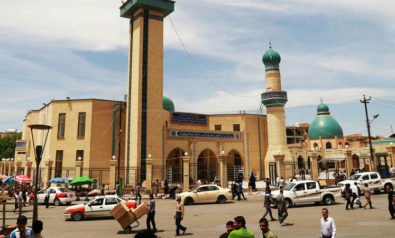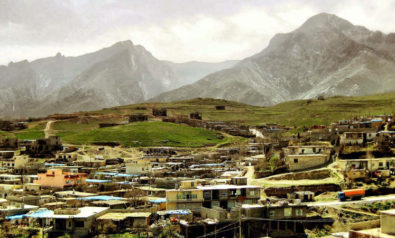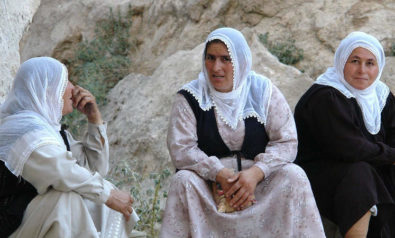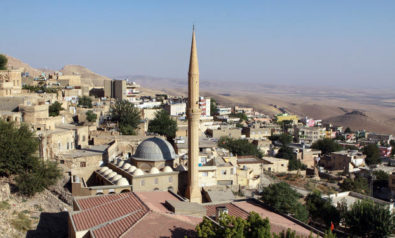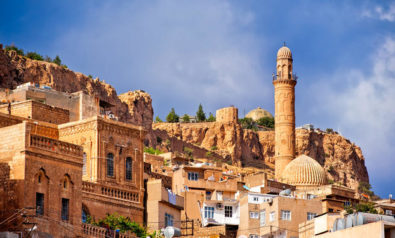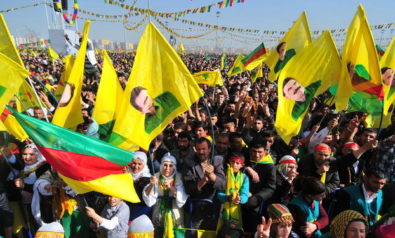The Kurds are a historically oppressed people without a state, whose grievances and aspirations for independence have recently drawn international attention largely because of the Kurdish role in the Syrian conflict.
Background
As the largest ethnic group in the world without a state, the Kurdish people have endured a history marked largely by rebellion, repression, and marginalization. Approximately 25 to 30 million Kurds live in the Middle East, primarily in a mountainous region known as Kurdistan, which encompasses parts of Iraq, Iran, Syria, and Turkey. The Kurdish people possess many attributes typical of a nation: their own language, traditions, and in some cases, government and security infrastructure. What they lack is political sovereignty.
In 1920, the Treaty of Sèvres, designed by the Allies to partition the Ottoman Empire at the end of World War I, promised the Kurds an independent nation. However, the treaty was never ratified. The superseding Treaty of Lausanne in 1923 divided the Kurdish region among modern-day Iraq, Syria, and Turkey.
The next several decades were marked by Kurdish rebellion in the region. The Kurds in Iraq, Iran, and Turkey separately declared independent Kurdish nations, but each nation lasted less than five years before the respective central government regained control.
Since the end of World War I, Kurdish populations experienced varying degrees of oppression and marginalization. Governments enacted bans on using the Kurdish language, wearing traditional Kurdish costumes, and even registering babies under certain Kurdish names. Some Kurds were deported or forced to resettle to dilute Kurdish population centers, and others were denied citizenship.
Unrest and military crackdowns punctuated this period of Kurdish history. One of the most brutal military campaigns occurred in Iraq under President Saddam Hussein, who killed thousands of Kurds using chemical weapons between 1987 and 1989. After the Persian Gulf War, the US and its Gulf War allies implemented a no-fly zone over northern Iraq, which protected the Iraqi Kurdish population until 2003.
Since the Gulf War, the Iraqi Kurdish region has flourished, becoming the only Kurdish population to establish a semi-autonomous government. The Kurdish Regional Government (KRG) held its first elections in 1992, and in 2005, the new Iraqi Constitution designated Iraqi Kurdistan as a federal entity of Iraq.
Why is the Kurdish Community relevant?
The Syrian Civil War has returned the Kurdish question to the global spotlight. The Kurds in northern Syria have used the country’s chaos as an opportunity to establish de facto autonomy — a development which concerns the Turkish government but has been supported by Iraq’s KRG.
The dominant Syrian Kurdish political party has opened police stations, courts, and local councils in northern Syria and has set up checkpoints to prevent the spread of violence into the region. The Kurds have stayed largely out of the conflict. They have little reason to trust the regime, which has historically oppressed the Kurdish population, or the opposition, which is largely composed of groups who do not support Kurdish rights.
Kurdish control in northern Syria worries the Turkish government because of the Syrian Kurds’ strong ties to the Kurdistan Workers’ Party (PKK), a US and EU-designated terrorist group that has fought against the Turkish government since the 1980s. Ankara fears that the PKK will use Syria as a safe haven for launching attacks on Turkey. Furthermore, the Turkish government is concerned that its own Kurdish population will intensify demands for autonomy.
In addition to the cross-border issues arising from the Syrian Kurdish situation, the Iraqi, Iranian, and Turkish governments have faced recent Kurdish unrest within their own borders. In Iraq, the relationship between the KRG and Baghdad has deteriorated since early 2012 primarily due to disputes over sharing oil wealth. Along the Iran-Iraq border, fighting flared up in the summer of 2011 between Iranian security forces and the Free Life Party of Kurdistan, a militant Kurdish nationalist group. In Turkey, clashes between government forces and the PKK have escalated since mid-2011, resulting in the highest number of casualties in over a decade.
The current Kurdish unrest mirrors that of the past several decades. However, the Arab Uprisings and the US withdrawal from Iraq have introduced great instability into the Middle East, suggesting that governments in the region will need to address the Kurdish issue with more finesse than they have in the past.
Image: Copyright © Shutterstock. All rights reserved
For more than 10 years, Fair Observer has been free, fair and independent. No billionaire owns us, no advertisers control us. We are a reader-supported nonprofit. Unlike many other publications, we keep our content free for readers regardless of where they live or whether they can afford to pay. We have no paywalls and no ads.
In the post-truth era of fake news, echo chambers and filter bubbles, we publish a plurality of perspectives from around the world. Anyone can publish with us, but everyone goes through a rigorous editorial process. So, you get fact-checked, well-reasoned content instead of noise.
We publish 2,500+ voices from 90+ countries. We also conduct education and training programs on subjects ranging from digital media and journalism to writing and critical thinking. This doesn’t come cheap. Servers, editors, trainers and web developers cost money.
Please consider supporting us on a regular basis as a recurring donor or a sustaining member.
Support Fair Observer
We rely on your support for our independence, diversity and quality.
Will you support FO’s journalism?
We rely on your support for our independence, diversity and quality.


